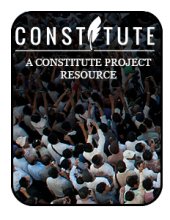Land Library
Welcome to the Land Portal Library. Explore our vast collection of open-access resources (over 74,000) including reports, journal articles, research papers, peer-reviewed publications, legal documents, videos and much more.
/ library resources
Showing items 46 through 54 of 273.There are multiple obstacles to the economic empowerment of women in Africa. For example, limited access to productive resources such as land, seed and fertiliser means that women may be unable to benefit from the expansion of trade in agricultural products.
This paper presents an overview of key issues in the literature on gender justice in the sub-Saharan Africa region.
The National Assembly promulgated the constitution after adopting it and after it was approved in a national referendum.
Indigenous land tenure arrangements in South Africa have generally consisted of communal ownership. In this system, who benefited from the land depended on their status as family or clan head.
Malawi is facing increasing land scarcity and food insecurity for its large rural population and is in the midst of an on-going land policy reform process. This report asks how these reforms may affect women's land rights in a situation of increasing scarcity and competition for land.
This study aims to identify how women's capacity to become more involved in decision-making at the local level can be strengthened, particularly in terms of access to natural resources. It also aims to identify the structures through which women secure their systems of production.
The constitution was promulgated by the President after 92.02% of voters approved it an a referendum.
The constitution was drafted by the Council of Representatives and approved by the Iraqi people in a referendum.
The constitution was approved by both the National Assembly and the National Liberation Council before being signed by the President.


